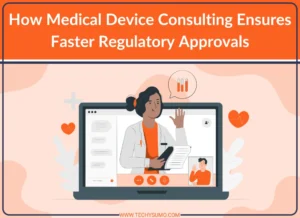For millions of us, mornings don’t really start until that first glorious sip of coffee hits our lips. It’s more than a beverage — it’s a daily ritual, a comfort, and sometimes even a mini-moment of joy before the chaos begins. But as wonderful as coffee is, it can bring along some unwelcome sidekicks: jitteriness, acid reflux, mid-morning crashes, or that unsettled stomach feeling you’d rather avoid.
The good news? You don’t have to choose between your daily brew and your well-being. With a few simple tweaks, you can enjoy your cup just the way you like it — minus the side effects. Here are the best wellhealthorganic.com: morning coffee tips with no side effect you’ll wish you knew sooner.
Table of Contents
- 1. Start Your Day With Water – Prep Your System First
- 2. Time Your Coffee Wisely – Morning, Not Midnight
- 3. Keep It Moderate – Less Can Be More
- 4. Eat Before Your Coffee – Protect Your Stomach
- 5. Cut Back on Sugar – Stabilize Your Energy
- 6. Add a Dash of Cinnamon – Flavor Meets Function
- Why You Should Avoid Coffee on an Empty Stomach
- Healthy Add-Ins to Upgrade Your Coffee
- Final Thoughts – Brew Smart, Feel Better
1. Start Your Day With Water – Prep Your System First
Before your first cup, drink a glass of water. It’s a tiny change with big impact. Water helps neutralize stomach acid, preps your digestive system, and prevents dehydration — something caffeine can easily cause. Think of it as warming up before a workout: your body will thank you for it.
2. Time Your Coffee Wisely – Morning, Not Midnight
One of the most overlooked wellhealthorganic.com: morning coffee tips with no side effect is timing. Caffeine stays in your system for hours, so drinking coffee too late in the day can disrupt your sleep. Aim for your last cup before 2 p.m. — ideally within a few hours of waking up — to keep your circadian rhythm in check.
3. Keep It Moderate – Less Can Be More
More coffee doesn’t mean more energy. In fact, overdoing it can lead to heart palpitations, headaches, and anxiety. One to two cups a day is the sweet spot for most people. By staying within this range, you’ll still get the focus and energy boost without the unpleasant side effects.
Also Read
4. Eat Before Your Coffee – Protect Your Stomach

Drinking coffee on an empty stomach is like inviting acid to a party with no food to absorb it. It can cause bloating, indigestion, and heartburn — not the way anyone wants to start their day. Try pairing your cup with a light breakfast or even a small snack like a banana, yogurt, or handful of nuts. This simple step can make your morning coffee tips with no side effect routine far more enjoyable.
If you’re planning to pair your morning coffee with a light breakfast or snack, you might also want to explore some high-quality vegetarian protein options. Our detailed guide on Wellhealthorganic.com: Vegetarian Protein Sources covers everything from plant-based proteins to easy meal ideas, helping you fuel your day the right way.
5. Cut Back on Sugar – Stabilize Your Energy
We all love a sweet cup, but sugar is often the culprit behind those mid-morning crashes. It spikes your blood sugar and leaves you feeling sluggish and moody once it drops. If you need sweetness, try natural alternatives like cinnamon, honey, or jaggery. They’ll satisfy your taste buds and keep your energy levels steady.
6. Add a Dash of Cinnamon – Flavor Meets Function
Here’s a fun twist: adding a pinch of cinnamon not only upgrades your coffee’s flavor but also helps reduce bloating and adds a hit of antioxidants. It’s one of the easiest wellhealthorganic.com: morning coffee tips with no side effect — and you probably already have it in your kitchen.
Why You Should Avoid Coffee on an Empty Stomach
It’s tempting to roll out of bed and go straight for your cup, but skipping breakfast before coffee can cause a chain reaction of issues. Here’s what happens when you do:
- Indigestion & Bloating: Coffee stimulates acid production. Without food, that acid can irritate your stomach lining.
- Blood Sugar Spikes: It may reduce insulin sensitivity, causing energy highs and crashes.
- Anxiety & Jitters: An empty stomach can lead to cortisol spikes — aka the stress hormone.
- Poor Nutrient Absorption: Coffee can interfere with iron, zinc, and calcium absorption, especially without food present.
Bottom line: Eat something before your brew. Your stomach and nerves will thank you.
Healthy Add-Ins to Upgrade Your Coffee
Want to take your coffee game even further? Try these healthy additions for extra benefits:
- Mushroom Coffee: Lower in acidity and easier on digestion — great if you’re sensitive.
- Collagen Peptides: Boosts protein intake and supports skin and joint health.
- Coconut or MCT Oil: Healthy fats that provide steady energy and support brain function.
- Ginger: A natural digestion aid with anti-inflammatory properties.
Adding any of these can turn your morning brew into a mini wellness elixir — a key part of the wellhealthorganic.com: morning coffee tips with no side effect strategy.
Final Thoughts – Brew Smart, Feel Better
Enjoying your daily cup of coffee shouldn’t come with side effects — and with a few mindful tweaks, it doesn’t have to. Drink water first, don’t skip breakfast, watch your sugar, and consider a few health-boosting add-ins. These small changes can transform your coffee from a daily habit into a true wellness ritual.
So tomorrow morning, when you reach for that mug, remember: your coffee should fuel your day, not drain it. And now, thanks to these wellhealthorganic.com: morning coffee tips with no side effect, you’ll be sipping smarter from the very first drop.






